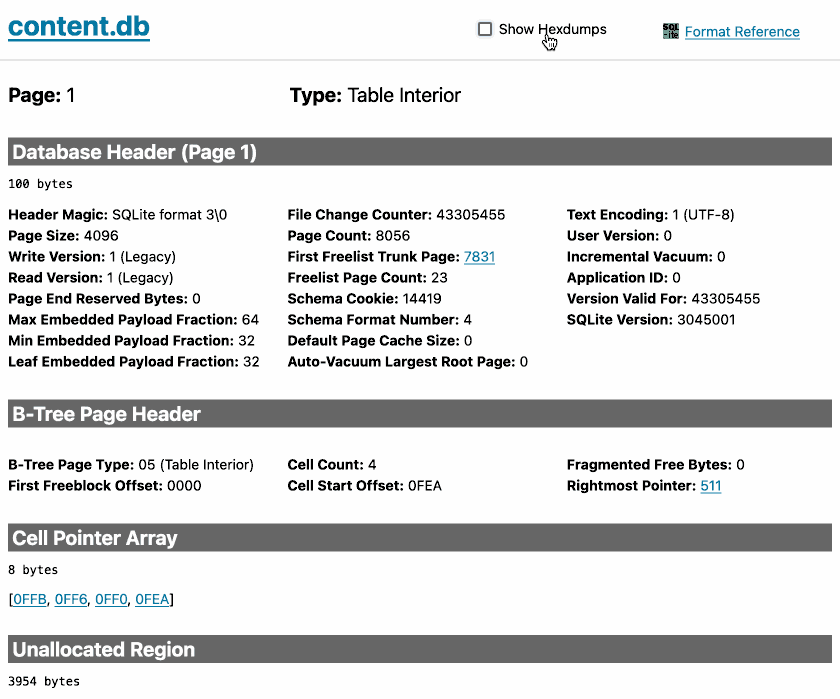11 posts tagged “lua”
2025
If this [MicroQuickJS] had been available in 2010, Redis scripting would have been JavaScript and not Lua. Lua was chosen based on the implementation requirements, not on the language ones... (small, fast, ANSI-C). I appreciate certain ideas in Lua, and people love it, but I was never able to like Lua, because it departs from a more Algol-like syntax and semantics without good reasons, for my taste. This creates friction for newcomers. I love friction when it opens new useful ideas and abstractions that are worth it, if you learn SmallTalk or FORTH and for some time you are lost, it's part of how the languages are different. But I think for Lua this is not true enough: it feels like it departs from what people know without good reasons.
— Salvatore Sanfilippo, Hacker News comment on MicroQuickJS
sqlite-page-explorer (via) Outstanding tool by Luke Rissacher for understanding the SQLite file format. Download the application (built using redbean and Cosmopolitan, so the same binary runs on Windows, Mac and Linux) and point it at a SQLite database to get a local web application with an interface for exploring how the file is structured.
Here's it running against the datasette.io/content database that runs the official Datasette website:

2022
Fullmoon (via) A “fast and minimalistic web framework” written in Lua, based on Redbean. The documentation for this is fantastic, and because it uses Redbean the development experience is to download the Redbean executable (which runs on every platform) and then drop your own Lua scripts into it using zip.
redbean (via) “redbean makes it possible to share web applications that run offline as a single-file αcτµαlly pδrταblε εxεcµταblε zip archive which contains your assets. All you need to do is download the redbean.com program below, change the filename to .zip, add your content in a zip editing tool, and then change the extension back to .com”.
redbean is implemented as a single C file with a dazzling array of clever tricks—most impressively, the single executable works on Linux, macOS, Windows and various BSDs!
It embeds Lua, and in June last year added SQLite too—so self-contained distributable web applications built with Redbean can now use Lua and SQLite for dynamic scripting. Performance sounds incredible: “redbean can serve 1 million+ gzip encoded responses per second on a cheap personal computer”.
Writing a minimal Lua implementation with a virtual machine from scratch in Rust. Phil Eaton implements a subset of Lua in a Rust in this detailed tutorial.
2018
Mozilla Telemetry: In-depth Data Pipeline (via) Detailed behind-the-scenes look at an extremely sophisticated big data telemetry processing system built using open source tools. Some of this is unsurprising (S3 for storage, Spark and Kafka for streams) but the details are fascinating. They use a custom nginx module for the ingestion endpoint and have a “tee” server written in Lua and OpenResty which lets them route some traffic to alternative backend.
2017
Object models (via) Extremely comprehensive and readable discussion of the object models of Python, JavaScript, Lua and Perl 5. I learned something new about every one of those languages.
2009
Nmap 5.00 Release Notes. Released today, “the most important Nmap release since 1997”. New features include Ncat, a powerful netcat alternative, Ndiff, a utility for comparing scan results so you can spot changes to your network, and a new Nmap Scripting Engine using Lua.
Tokyo Cabinet: Beyond Key-Value Store. Useful overview of Yet Another Scalable Key Value Store. Interesting points: multiple backends (hash table, B-Tree, in memory, on disk), a “table” engine which enables more advanced queries, a network server that supports HTTP, memcached or its own binary protocol and the ability to extend the engine with Lua scripts.
why’s potion. why’s latest project is a small, fast language (JIT to x86/x86-64) which seems to take ideas from Ruby, Lua, Python and who knows where else. Everything is based around objects, closures and mixins, with the delightful inclusion of scoped mixins so you can modify an object only within a certain module (hence avoiding Ruby’s action-at-a-distance problems).
2007
mod_magnet (via) lighttpd module that will be included by default in version 1.5—it lets you write Lua scripts that can hook in to any phase of the request, including URL rewriting and content generation.